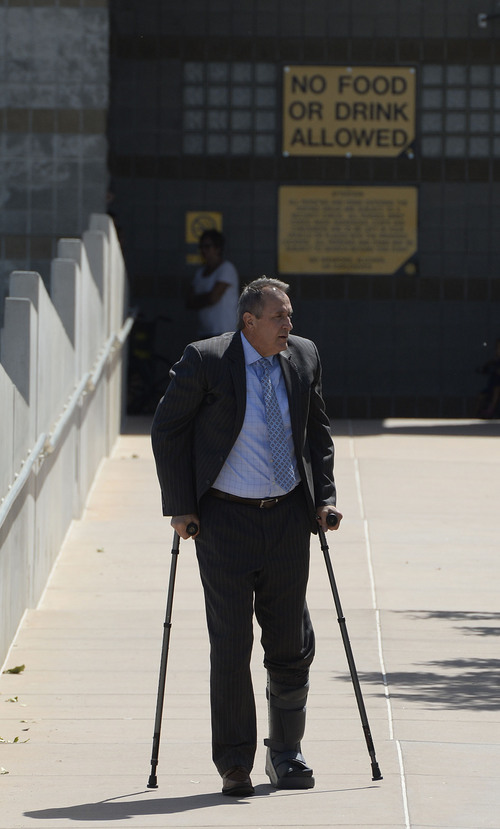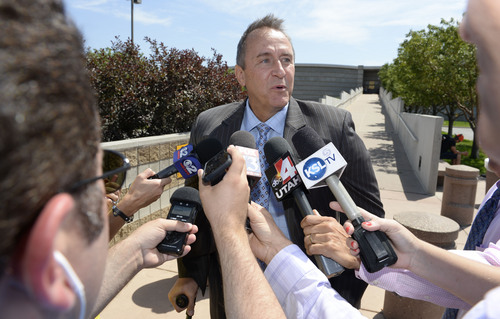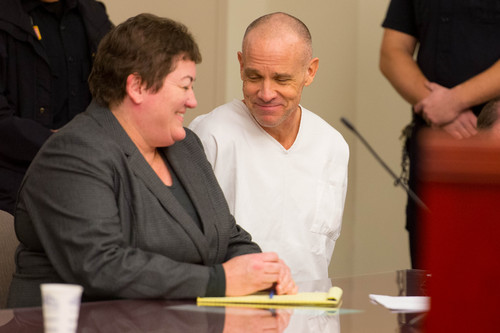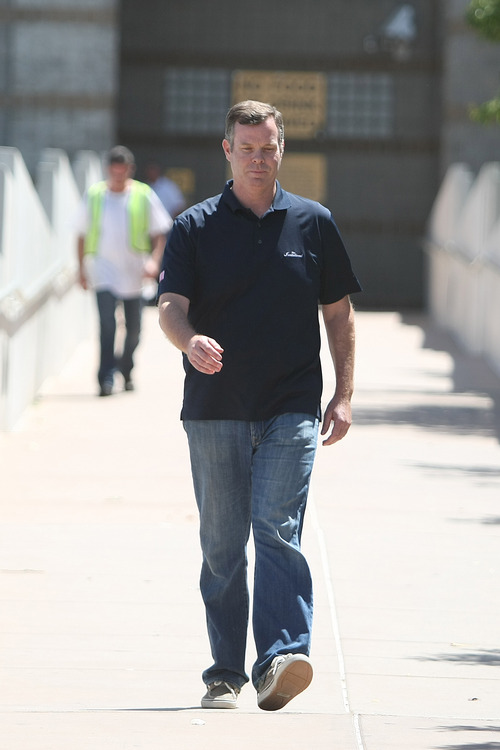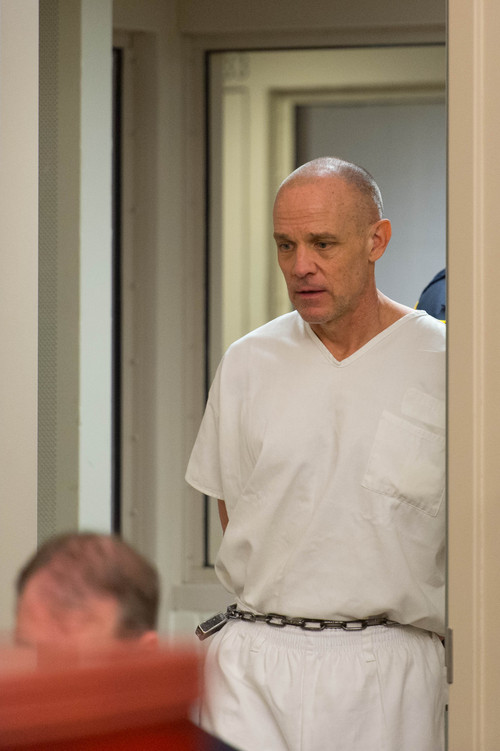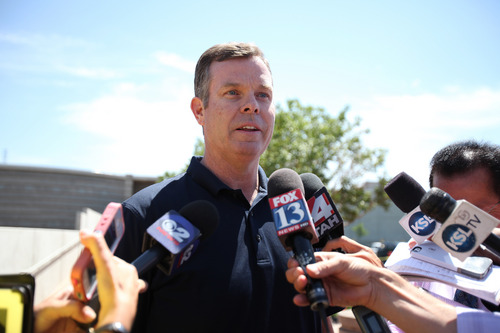This is an archived article that was published on sltrib.com in 2014, and information in the article may be outdated. It is provided only for personal research purposes and may not be reprinted.
For the second time, a judge has refused to order Mark Shurtleff and John Swallow to testify about the prosecution of a convicted fraudster, who has alleged that the former attorneys general went after him for resisting a "pay-to-play" scheme at the heart of a scandal that led to the arrests of the two former Utah politicians.
Undeterred by the judge's decision, defense attorney Marcus Mumford insisted there was more politics to the prosecution of his client, Mark Sessions Jenson, than the case so far has revealed.
"This is not just a fiction," Mumford said after Wednesday's hearing. "We will continue to press the issue because we know the evidence is out there. ... We know there was a secret meeting with the alleged victims here prior to the charges being brought. The prosecution has insisted they've turned over everything they have, but they haven't turned over anything regarding that meeting or how this case was brought."
In a telephone conference call, 3rd District Judge Elizabeth Hruby-Mills ruled on several motions, including Mumford's request for an evidentiary hearing that he has said would include hauling the former attorneys general and several others into court.
The conference call in which the judge discussed her reasoning was closed to the public. Written orders are expected by month's end.
Wednesday's decision marked the second time Hruby-Mills has declined to force the former attorneys general to take the stand in Jenson's case.
Mumford pointed to the recent arrests of Swallow and Shurtleff on suspicion of numerous crimes as evidence that their dealings with his client were less than honorable.
Swallow, who was forced from office in December less than a year into his first term, was charged with 11 felonies and two misdemeanors, including multiple counts of receiving or soliciting bribes, accepting gifts, tampering with evidence, obstructing justice, and participating in a pattern of unlawful conduct.
Shurtleff, who served 12 years as attorney general before making Swallow his chosen successor, was charged with 10 felonies, including receiving or soliciting bribes, accepting gifts, tampering with witnesses and evidence, and participating in a pattern of unlawful contact.
Jenson's prosecution began during Shurtleff's tenure.
According to charging documents filed against the former attorneys general, Swallow traveled to Newport Beach, Calif., three times and stayed in a villa owned by Jenson, who, at the time, was free on a plea deal with Shurtleff, the then-attorney general. Swallow was also accused of providing false information "regarding the Jenson cases, campaign donations and gifts and/or bribes received."
Shurtleff is accused of helping to negotiate a plea deal with Jenson regarding a securities-fraud case and then twice staying at Jenson's lavish Southern California villa. On the second trip, charges allege, Shurtleff hit up Jenson for $2 million to pay another businessman, Darl McBride, to take down a website critical of Mark Robbins, a Utah developer who had been a former Jenson business partner.
Jenson refused what he has called a "shakedown." He later was charged with eight felonies related to the now-defunct development of an upscale golf and ski resort near Beaver.
"Even more explicitly than ever, there are documents that allege Mr. Jenson was prosecuted only after he refused to give Mr. Shurtleff $2 million," Mumford said. "That connection is made explicit in the charges that were filed against Mr. Shurtleff."
Utah County prosecutor Tim Taylor — who took over the case after the Utah attorney general's office bowed out, citing the appearance of a conflict — was unavailable for comment Wednesday afternoon.
Taylor previously has dismissed Mumford's insistence on dragging the former attorneys general into court as irrelevant.
He has said regardless of whether Jenson was singled out for his alleged unwillingness to play ball with the former attorneys general, he still committed crimes and defrauded investors of substantial sums.
A review in April by a former federal judge and a retired prosecutor — ordered by new Utah Attorney General Sean Reyes — raised substantial questions about Shurtleff's handling of the Jenson case, but determined that his alleged misconduct shouldn't invalidate Jenson's securities conviction or the charges in the Mount Holly resort matter.
On Wednesday, the judge agreed to allow Taylor to admit evidence of Jenson's "prior bad acts" in support of the accusation that Jenson did not properly disclose his history of civil and criminal litigation to investors.
Mumford downplayed that decision's impact to his client's case, saying the individuals Jenson is accused of defrauding in the ski resort case knew more than they have let on.
"These alleged victims are not the victims they claim to be," Mumford said. "They knew about the [previous cases], they knew the history of all that."
Hruby-Mills also denied two additional motions in the case: one by the prosecution seeking to ban the defense from introducing "certain evidence" in trial, and another from Jenson's co-defendant brother, Stephen R. Jenson, asking that his case be severed.
In a hearing earlier this month, Stephen Jenson's attorney voiced concerns that his client's case would be overshadowed and muddled by that of his brother.
A nine-day trial for the Jenson brothers has been set for early next year.
Shurtleff and Swallow are scheduled to appear July 30 in 3rd District Court for their initial appearances. Both have proclaimed their innocence.
Twitter: @Marissa_Jae


